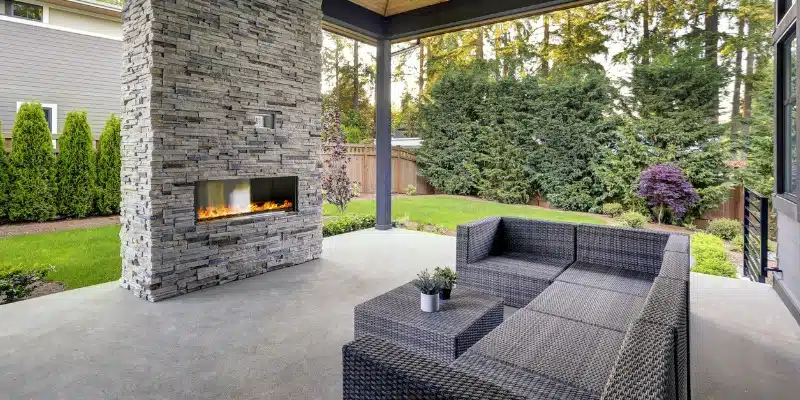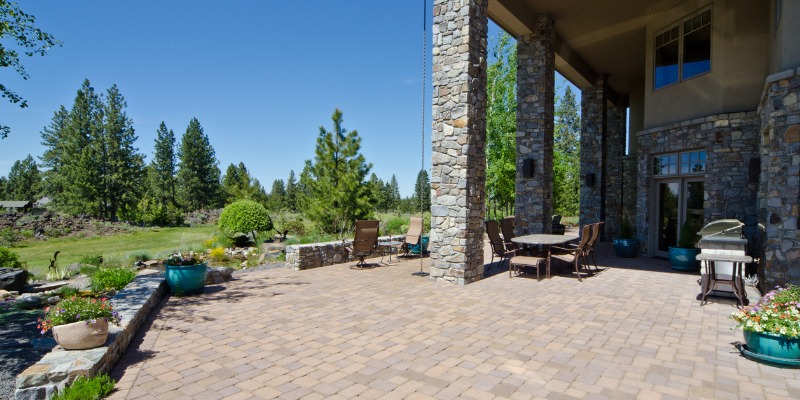
If you’re getting a new patio (or other hardscaping feature) you are probably considering opting for interlock or concrete. These two popular materials have a lot going for them, so it can be hard to choose which one is right for you. This guide will help you determine whether interlock or concrete is best for your patio.
Costs
One of the most important factors for many homeowners is the cost of their patio material.
While prices vary for both materials, in general, you can expect concrete to cost less upfront, but moreover the long-term. Concrete is relatively simple to install. It takes skill to get the pour just right, but it does not take a lot of man-hours, so installers can generally charge less. That is unless they are laying the concrete in a very unusual shape, which may be necessary for a patio.
Pavers cost more in material and labour. It is more challenging to make them, as they need to be dyed, textured, and cut. Then, each needs to be laid properly and the joints need to be filled with polymeric sand. Pavers may cost more, but they also do not require curing time. Whereas, if you choose concrete, you will need to wait for it to set to use the patio.
Maintenance and Repairs
The two materials also differ greatly when it comes to maintenance and repairs. Concrete needs to be sealed and is more likely to crack, develop low spots, and shift under big temperature changes. That can make it challenging to maintain in our Canadian climate. Most critically, concrete holds less weight than pavers and is more easily stained than pavers, which may make it an inferior choice for a patio. However, concrete also has the advantage of not attracting as many weeds, which means it requires less yearly maintenance as a whole than interlocking.
Pavers do not need to be sealed because they resist staining better because of their colour and texture. Paver joints need regular maintenance to prevent weeds, and pavers are less likely to develop cracking problems. If they do develop problems, it is relatively easy to fix them. All you need to do is take out the damaged pavers and place new ones in. As a bonus, interlocking can also hold more weight than concrete.

Appearance
Perhaps the most important factor in which material is best for your patio is their beauty. While most people tend to prefer interlocking, simply due to the sheer texture and colour selection available, there are some landscapes where concrete really does look best. It goes with contemporary, minimalist landscapes.
Whether you want a concrete patio or interlocking patio we have the expertise to install it right. Contact us today for more information.
Sources:
https://www.installitdirect.com/learn/concrete-vs-pavers-cost/
https://www.homeadvisor.com/r/pavers-vs-concrete/

